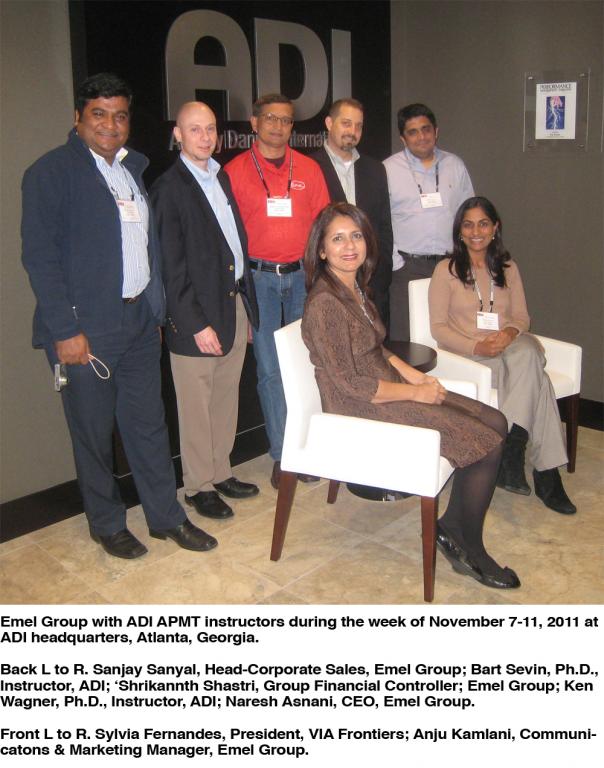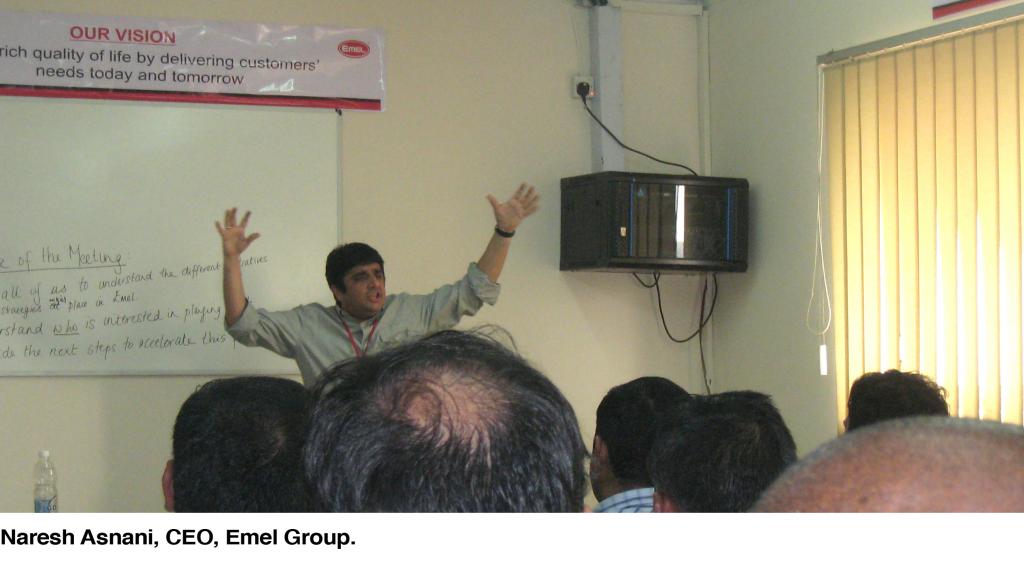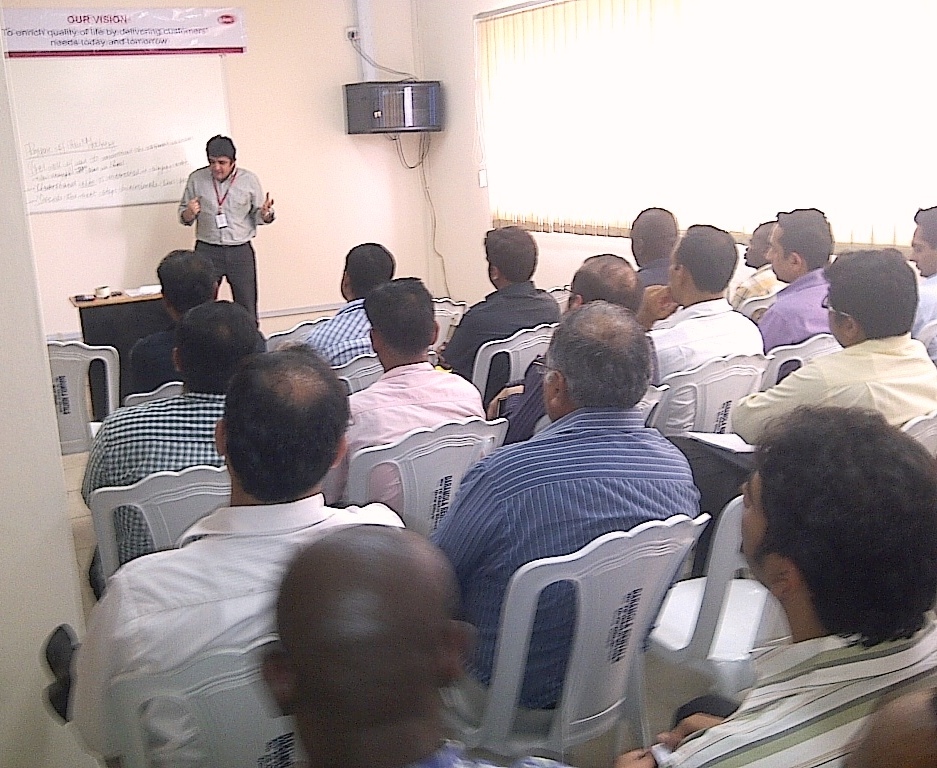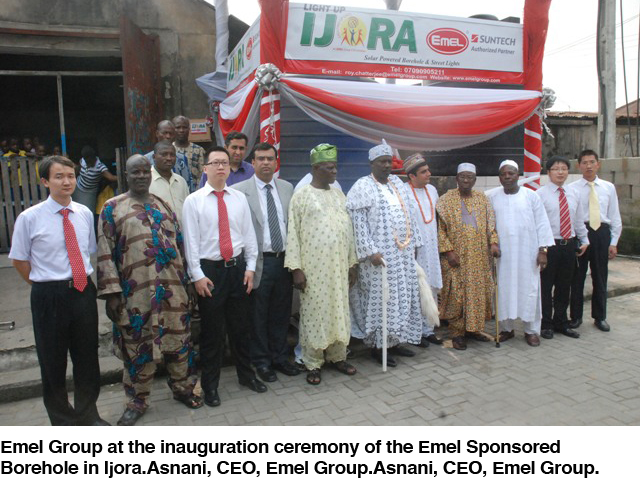The Emel Group Champions Performance Management in Nigeria
Over forty years ago, Mr. M. L. Asnani founded a small, family-run trading business with the goal of offering quality goods at an affordable price to the people of Nigeria. Initially, with its first product of small sewing machines, the business employed half a dozen people. Today over 500 employees work for the Emel Group, one of Nigeria’s leading business conglomerates with successful ventures in consumer products, corporate services, and infrastructure. Contributing greatly to the country’s economy, and headquartered in Nigeria’s capital of Lagos, the Emel Group has become a trusted employer. Now a source of goods and services with expanded operations in China, Hong-Kong, and India, the organization partners with local dealers and distributors as well as other global companies.
Such exponential growth, even though a sign of success, usually means that an organization can experience culture shock due to the demands of ongoing change. In 1993 Naresh Asnani, the son of the company’s founder, took the reins of the organization as its new CEO. He was happy that the business was growing so quickly and doing so well, but he soon realized that some management problems were not being addressed. “Two or three years ago, I struggled with the whole non-structure of my business. Everything hinged around one person and decisions were made by one person. It just felt like I couldn’t repair this, so we brought in a professional COO about two years ago,” he explains. “Since then we transformed the whole business into a more professional operation with proper departmentalization, and much more sophisticated systems and processes that define what we should be doing.”
The restructuring of systems and processes was a promising start, but doing so didn’t mean that people automatically changed their habits. Almost immediately those who were accustomed to running the business their way began having conflicts with the new ways. “We hired many new people and found ourselves in a culture struggle between the new and older employees. They were used to this being their company and doing things the way they wanted to do them. We found ourselves in struggle and conflict,” says Asnani.
 Admirably, Asnani and his management team didn’t ignore the problems, but attempted to address them head on. After reading the book Gung-Ho, by Ken Blanchard and Sheldon Bowles, they set up a series of in-house talks and conversations with employees. The open communications eased tensions, but Asnani wanted to do more. At about that time, while in Singapore, he had a conversation with Sylvia Fernandes, one of Aubrey Daniels International’s alliance partners. Sylvia explained the positive behavioral methods that ADI used for managing performance change and suggested the approach would be a good way to achieve the Emel Group’s culture change goals. “I felt this was the really right time. If I wanted to get the culture right in the company, it needed to be done now!” Asnani recalls. “We needed to set the stage and build the culture so that when we go through future growth, we’ve already defined who we are, what’s right in the organization, and what’s not right. Sylvia told us that ADI’s process fit hand-in-hand with what we were trying to do.”
Admirably, Asnani and his management team didn’t ignore the problems, but attempted to address them head on. After reading the book Gung-Ho, by Ken Blanchard and Sheldon Bowles, they set up a series of in-house talks and conversations with employees. The open communications eased tensions, but Asnani wanted to do more. At about that time, while in Singapore, he had a conversation with Sylvia Fernandes, one of Aubrey Daniels International’s alliance partners. Sylvia explained the positive behavioral methods that ADI used for managing performance change and suggested the approach would be a good way to achieve the Emel Group’s culture change goals. “I felt this was the really right time. If I wanted to get the culture right in the company, it needed to be done now!” Asnani recalls. “We needed to set the stage and build the culture so that when we go through future growth, we’ve already defined who we are, what’s right in the organization, and what’s not right. Sylvia told us that ADI’s process fit hand-in-hand with what we were trying to do.”
Soon afterward, Asnani and three associates were on their way to the United States to attend Applications of Performance Management Technology (APMT) at ADI’s headquarters in Atlanta, Georgia. “We plan to gain an understanding of ADI’s behavioral methods and when we return, to be the champions of implementing this in our organization as part of our culture,” he says.
Before returning to Nigeria, and during APMT training, Asnani discussed the positive behavioral approach to performance management that he and his team were learning. “It’s fascinating. In Nigeria, not much of this is really going on. Nigeria is a country where most of the management relies on punishment and penalty to run business. Especially in a country like Nigeria, this process has huge, huge potential. The whole act of recognizing that it’s the behavior that needs to be managed is a simple but very powerful tool. We are all very excited about it,” he says. “I get a sense that this is our tipping point, the stuff we’ve been working for. Putting this into place is going to escalate us into the next stage of our business.”
However, Asnani acknowledges that he and his team have some big hurdles to cross. “In our company, which tends to be the case in most foreign-owned companies, the senior positions go to expatriates and the Nigerian people tend to have more middle-management positions. We really want to change this dimension,” he says. “It’s going to take time, but I’m very confident that it’s going to happen.”
 Darnell Lattal, personally met with the group during their stay in Atlanta. “I think it’s wonderful that ADI’s science-based strategy transcends borders, cultures, and conditions,” she says. “The value of reducing threat and fear as a management strategy speaks to people all over the world and it has been a true delight to get to know Naresh and his team. We wish him, his team, and Sylvia and her team the best in bringing about positive business and culture change. I look forward to learning more together as the days proceed."
Darnell Lattal, personally met with the group during their stay in Atlanta. “I think it’s wonderful that ADI’s science-based strategy transcends borders, cultures, and conditions,” she says. “The value of reducing threat and fear as a management strategy speaks to people all over the world and it has been a true delight to get to know Naresh and his team. We wish him, his team, and Sylvia and her team the best in bringing about positive business and culture change. I look forward to learning more together as the days proceed."
 Asnani and his group of Performance Management champions know they have much to learn in implementing the process at Emel, but they are determined to do so with Sylvia’s guidance. They plan on using Performance Management within their own departments with hopes of then assisting other departments who are impressed by the results they achieve. “This is to be discovered as we go along,” he explains. “First we want to prove the success in how we are doing it. And when that success is shown, we are hoping that others will come to us and say, ‘Hey, whatever you guys have done seems to be fantastic. We want to get trained for it.’”
Asnani and his group of Performance Management champions know they have much to learn in implementing the process at Emel, but they are determined to do so with Sylvia’s guidance. They plan on using Performance Management within their own departments with hopes of then assisting other departments who are impressed by the results they achieve. “This is to be discovered as we go along,” he explains. “First we want to prove the success in how we are doing it. And when that success is shown, we are hoping that others will come to us and say, ‘Hey, whatever you guys have done seems to be fantastic. We want to get trained for it.’”
 The group wants to use the process not only for culture change but for meeting other strategic company goals. “There are large gains that can be achieved in various areas from redefining the sales team to redefining different teams and bringing us all on the same page. The things we’re targeting are sales, discipline on expense and budgets, cost expenditure, and prompting new strategies,” says Asnani. “I hope to get a greater element of focus, energy, and results in the creation of a new strategy, for example.”
The group wants to use the process not only for culture change but for meeting other strategic company goals. “There are large gains that can be achieved in various areas from redefining the sales team to redefining different teams and bringing us all on the same page. The things we’re targeting are sales, discipline on expense and budgets, cost expenditure, and prompting new strategies,” says Asnani. “I hope to get a greater element of focus, energy, and results in the creation of a new strategy, for example.”
ADI has completed a cultural survey analysis of the Emel Group and so far the results show that the organization is starting from a promising baseline. Anju Kamlani, communications and marketing manager for Emel, will also be a Performance Management champion. “While I’ve been at ADI just in these few days, the kind of performance Ievels I have experienced, the high efficiency and response times tell me that it is possible. It’s very reassuring that if it’s possible here then it’s possible within Emel as well. Also, we’ve heard from our survey results that everyone at Emel is very committed to making it a successful company and a good place to work. If you have that level of commitment from your people, you’re three quarters of the way there. That will be a big help in enabling us to realize our goals.”
 Asnani and his team are open to reporting their progress in the months to come, sharing their successes and lessons learned. “I think the Emel Group is almost a test pilot for doing this in Nigeria. If it works for us, there’s great potential for this to be taken to many different companies in many different places,” he states. “ADI’s values are really the core to what we want to achieve at Emel: bringing out the best in people, unlocking the potential of people, and finding out what our customers need and giving it to them. I think we’re going to have some very early wins. To get to where we want to be will be a journey, but a reinforcing journey.”
Asnani and his team are open to reporting their progress in the months to come, sharing their successes and lessons learned. “I think the Emel Group is almost a test pilot for doing this in Nigeria. If it works for us, there’s great potential for this to be taken to many different companies in many different places,” he states. “ADI’s values are really the core to what we want to achieve at Emel: bringing out the best in people, unlocking the potential of people, and finding out what our customers need and giving it to them. I think we’re going to have some very early wins. To get to where we want to be will be a journey, but a reinforcing journey.”
Published December 16, 2011


